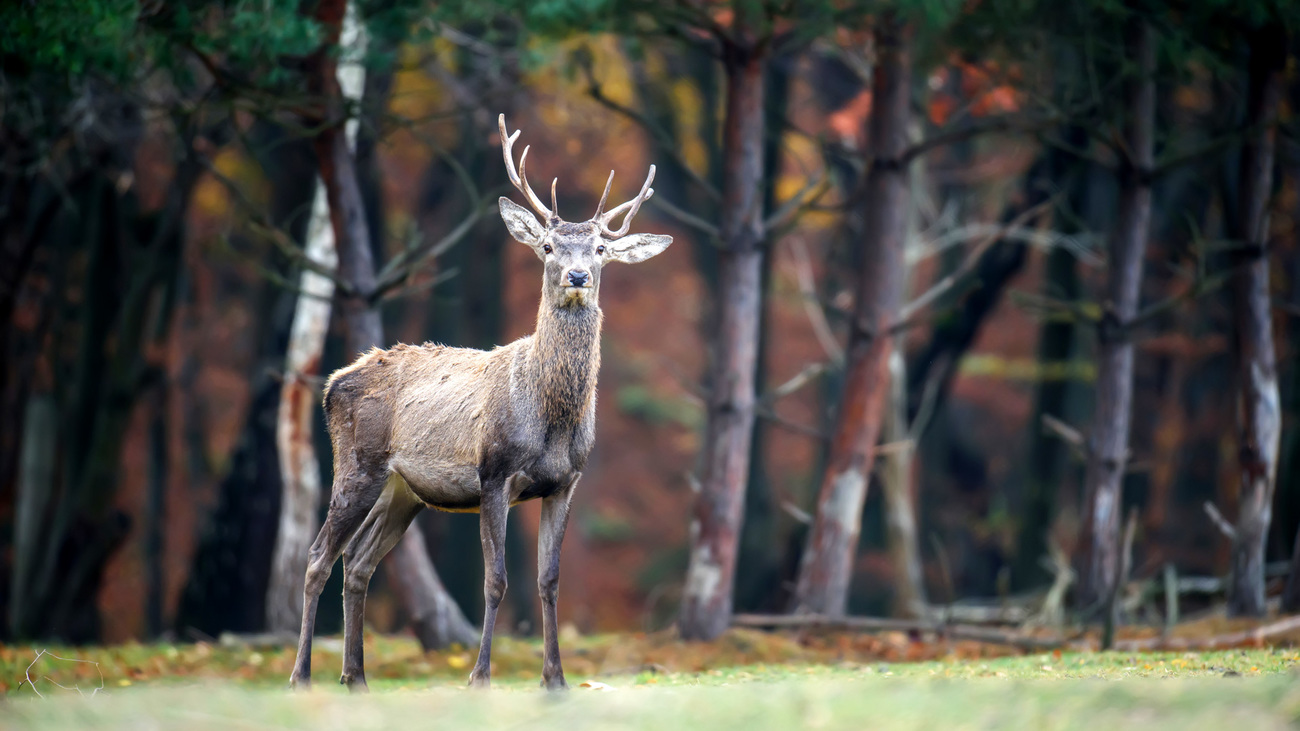Rescuing animals during disasters – Europe
save human lives by saving animals before, during and after disastersNew nature reserve for rescued wildlife in war-torn Ukraine
New nature reserve for rescued wildlife in war-torn Ukraine

(Ivano-Frankivsk, Ukraine - 23 February 2024) – A new nature reserve is being established in Western Ukraine to provide a safe refuge for rescued wildlife.
Kasova Hora is the largest meadow-steppe area in Central Europe and its vegetation cover is unique for the region, but only half of it is protected. It stretches out over more than 130 hectares in Ukraine's Ivano-Frankivsk region, 71 of which belongs to a local community.
The community-owned area was at risk of wildfires because of significant shrub over-growth and large amounts of dry grass after hot summers and snowless winters. To help restore the ecosystem, local environmental group Eco-Halych worked with IFAW to set up a wildlife rehabilitation and release area across part of the 71 hectares.
Not only will rescued animals have a safe space to rehabilitate and become wild again, but they will also help to recreate and preserve the unique meadow-steppe ecosystems of the area through controlled grazing.
"Kasova Hora was burnt out, overgrown with shrubs and had numerous alien species. By bringing in wildlife, such as Przewalski's horses, various types of deer and other herbivores, we can ensure moderate and controlled grazing,” says Volodymyr Buchko, head of Eco-Halych. “Through specialist management measures, we will be able to protect and preserve the important biodiversity in this area.”
The community land is under consideration to become a protected nature reserve after IFAW, Eco-Halych and a group of Ukrainian scientists made the request. The status is anticipated to be granted by local government in the coming months.
The intention will then be to rehabilitate and release wild animals in a fenced off area within the new nature reserve. Several animals rescued from the war or from inappropriate living conditions have already been released into the reserve including one Przewalski's horse, an injured hare, several roe deer and a mouflon – a wild sheep species.
“These animals initially lacked the skills to survive in the wild, but with time and patience, we’ve been able to slowly rehabilitate them. After being rescued, they were placed in temporary enclosures where they received food and care, and were able to socialise with other animals,” explains Natalia Gozak, wildlife rescue officer Ukraine at IFAW.
“Now they have graduated into their new habitat, a plot of 23 hectares of fenced meadows in Kasova Hora. Here, we should see their natural wild instincts start to flourish so they can truly live as the wild animals that they are. Seeing rewilding in action is always exciting.”
This part of Western Ukraine has remained largely sheltered from the impact of the on-going war. That doesn’t mean that conflict is non-existent, but to date it remains much safer than places closer to the Russian border.
Notes for the editor
- Kasova Hora is a ridge of small hills with steep slopes and flat tops located in the Ivano-Frankivsk region of Ukraine. Most of Kasova Hora has a ‘protected area’ status – since 1975 the Northern and Northeastern parts are recognized as natural monuments of national importance, and since 2004 another 65 hectares have been protected within Halych National Nature Park. The Southern part of Kasova Hora still has no protected status, which is why the current request was made.
- The Ukrainian parliament ratified the Bern Convention, which among other things defines the Emerald Network areas in Ukraine (equivalent to the Nature 2000 Network, but for non-EU countries). Eco-Halych together with IFAW partner UNCG have applied to the secretariat of the Bern Convention to get the Emerald Network status for the Kasova Hora area, based on the research conducted with IFAW's support.
- Since the start of the full-scale invasion in February 2022, IFAW has been working with communities, NGOs, animal rescue centers and other partners in Ukraine to rescue and rehabilitate war-affected animals, providing them with feed, emergency medical care and shelter. To date, IFAW has been able to directly help over 165,000 animals in need.
Press contact
For more information, photo/video material or to arrange interviews with IFAW or Eco-Halych, please contact:
Annelyn Close
+31 6 3900 8295
aclose@ifaw.org
Related content
Every problem has a solution, every solution needs support.
The problems we face are urgent, complicated, and resistant to change. Real solutions demand creativity, hard work and involvement from people like you.